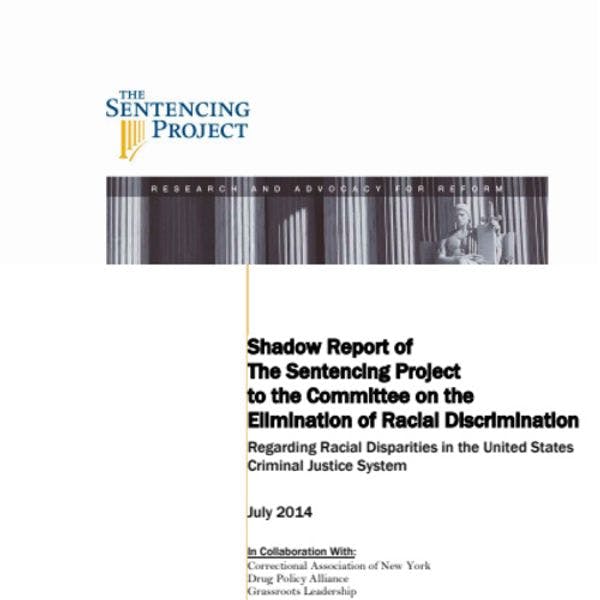Rapport alternatif sur les discriminations éthniques au sein du système de justice pénale américain
Ce rapport aborde la question des disparités ethniques au sein du système de justice pénale ainsi que de la réclusion à perpétuité sans possibilité de libération conditionnelle. Il considère également la question de la peine de mort et ce qu’implique son usage en termes d’ethnicité et de violation des droits civiques. Pour en savoir plus, en anglais, veuillez lire les informations ci-dessous.
Abonnez-vous à l'Alerte mensuelle de l'IDPC pour recevoir des informations relatives à la politique des drogues.
Established in 1986, The Sentencing Project works for a fair and effective U.S. criminal justice system by promoting reforms in sentencing policy, addressing unjust racial disparities and practices, and advocating for alternatives to incarceration.
In this report we will address racial disparities in the criminal justice system, juvenile life without parole, the death penalty and its racial implications, and finally, felony disenfranchisement. All of these issues fall under the purview of Article 5 of the International Convention on the Elimination of All Forms of Racial Discrimination (ICERD).
The United States emphasizes in paragraph 17 of its report that “[r]acial discrimination by the government is prohibited at all levels.” Through its laws and policies, the government suggests strides have been made in securing the government’s compliance with the ICERD.
While there has been change in U.S. laws and policies to address racial discrimination, disparities in the justice system remain profound with disturbing consequences for participation in society.
Here are the following suggested recommandations:
- Given the injustices and unfairness produced by mandatory sentencing policies, the government should strive to see such policies either repealed or substantially scaled back in scope. In addition, policies such as the Fair Sentencing Act which have corrected injustices in the system should be applied retroactively to persons convicted of relevant sentences prior to adoption of the legislation.
- As a result of the 2012 U.S. Supreme Court ruling in Miller v. Alabama persons under the age of 18 may no longer be sentenced to life without parole without judicial consideration of less punitive options. As the states come into compliance with this ruling they should establish a minimum term before parole consideration of no longer than 15 years in prison, based on young people’s capacity to change and to take advantage of rehabilitation opportunities in prison.
Keep up-to-date with drug policy developments by subscribing to the IDPC Monthly Alert.
